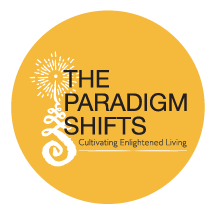In this series on Becoming Nobody Special, I’m sharing reflections, stories and gentle provocations from my own unfolding journey—and from the journeys of those I have the honor of walking alongside. We’d love for you to join us.
Here is the link to the video.
Today, I want to offer you a story that beautifully illustrates the dance between wanting to be special and learning the art of being ordinary.
Remember Sarah from my previous post? This is a story about Sarah. That’s not her real name, but she’s given me full permission to share this with you — because she knows how deeply valuable her process is, and how many others might grok something meaningful from her exploration. And I agree.
The Life Purpose Question
In a recent session, Sarah said something many of us have probably thought or asked:
“I just really want to know what my life purpose is.”
It was such a sincere moment — but also a loaded one. Underneath her words was a striving: a hope that her purpose might reveal she is extraordinary, talented, valuable, and important.
And so I did what any fairy godmother would do — I reached for my (imaginary) magic wand and said:
“Sarah, in this moment, I’m waving my wand. You now know your life purpose. You are Middle C.”
She looked at me, a bit puzzled. Sarah knows music well, so she instantly understood the reference.
Middle C — the central key on the piano. The starting note for beginners. The note every composer uses. The foundation of the entire keyboard.
Her reaction?
“I don’t want to be Middle C.”

We All Want to Be Special
To her, being Middle C felt… too ordinary. Too basic. Too common.
She said, “Everybody plays C!” She wanted to be something more special.
So I waved my wand again.
“Alright,” I said, “You’re now F flat, two octaves up.”
Her eyes lit up — but only for a moment.
“That’s… well, hardly anyone plays that. It’s almost useless. No one writes for that note.”
Then she asked, “Can I be the highest key on the piano?”
I waved my wand once more.
Now she was the highest note — rare, exquisite, the dream of every soprano.
“Wow… that’s so special,” she whispered.
But soon enough, the same doubt emerged:
“Composers barely use this note. Singers hardly ever hit it. I’m not useful up here. I’m not in anything. No one needs me.”
And so, I gently guided her back to Middle C.
The Sacredness of Middle C
As we explored this together, Sarah realized how deeply ingrained her desire to be “special” really was — and how resistant she was to being ordinary.
And yet… Middle C is not just ordinary.
Middle C is foundational. Recognizable. Resonant.
It is the note that allows all other notes to find their place.
It’s used by children learning to play and by masters composing symphonies.
And isn’t that what we all long for?
To be in harmony with ourselves — and with others?
When we allow ourselves to fully be who we are — in our own note, our own key, our own resonance — something incredible happens. We begin to vibrate with a clarity that invites harmony in others.
It’s like striking a tuning fork: when you are true to your essential note, others around you begin to express their own—effortlessly.
That, to me, is purpose.
Not a role. Not a title. Not even a talent.
But the full-bodied, unapologetic expression of being you.
What’s Yours to Do
So many of us ask, “What’s my life purpose?” but quickly dismiss the answer if it doesn’t feel important enough.
“That’s too ordinary.”
“That won’t make money.”
“Why would I come to Earth just to do that?”
But the deeper question is:
What’s mine to do?
Not what will impress others.
Not what guarantees security.
But what brings you delight?
What carries your resonance?
What feels like the sweater you’re inspired to knit, the meal you’re meant to make, the song you’re meant to hum?
I know a man who cleans septic systems on our little island in the Pacific Northwest. Doesn’t sound glamorous.
But when I talk to him, his joy is palpable. He’s found clever solutions, enjoys helping people, and lights up in his work.
He’s in harmony — with himself and with life.
And when I’m around him, I light up too.
That’s the magic of becoming nobody special.
Your Key of C-ness
This week, I asked Sarah to spend time simply being Middle C — and to notice where resistance shows up.
What voices tell her she’s not enough?
What beliefs say ordinary isn’t valuable?
Try this yourself. Ask:
- Where do I feel I need to prove my worth?
- What brings me quiet delight, even if no one else sees it?
- What’s mine to do — even if it seems “just ordinary”?
When we surrender the quest to be special, we often discover something even more extraordinary: ourselves.
In the resonance of your true note, the world becomes more harmonic — in resonance with indescribable delight.
I’m sending you the courage to have all the fun you’re willing to have!
Blessings,
Rosie

